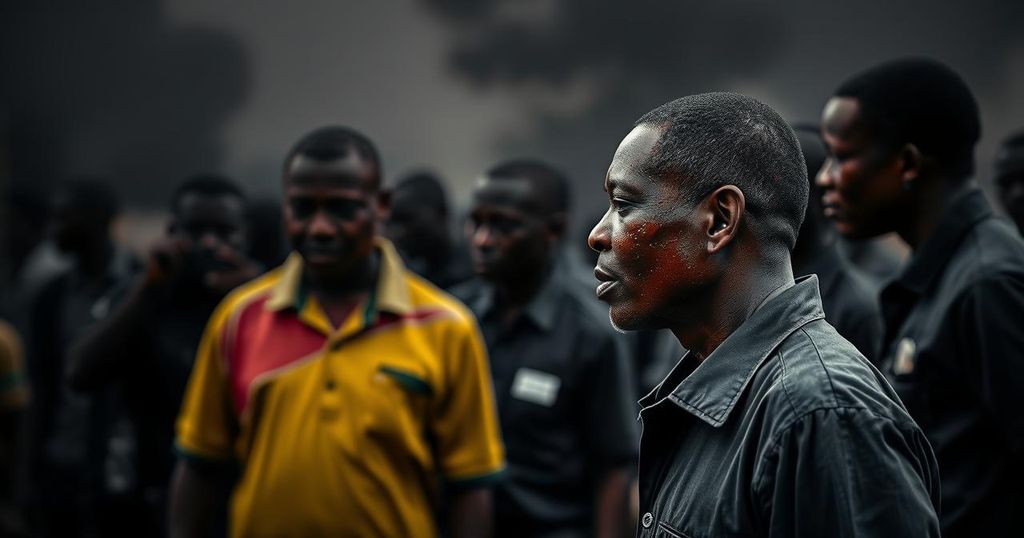Allegations of Electoral Fraud Emerge in Mozambique’s Recent Elections
Upcoming elections in Mozambique have sparked allegations of large-scale fraud from opposition candidates, particularly Venancio Mondlane. Despite FRELIMO’s expected victory, reports of electoral irregularities, including illegal voting and discrepancies in vote counting, have prompted demands for international investigations. The political dynamics may shift with potential declines in Renamo’s influence as new parties emerge.
The official election results in Mozambique remain pending, but it is widely anticipated that the ruling party, the Liberation Front of Mozambique (FRELIMO), led by Daniel Chapo, will emerge as the victor. In the presidential race, Venancio Mondlane, formerly of the opposition Renamo party, asserts he has achieved victory despite official projections placing him in second behind Chapo. Mondlane claims he is a target of extensive electoral fraud, stating, “What we are seeing here is election rigging of the highest order.” Official figures indicate Chapo’s clear lead in Maputo, with approximately 53.68% of the votes compared to Mondlane’s 33.84%. Other candidates, including Ossufo Momade of Renamo and Lutero Simango of the MDM, garnered significantly fewer votes. While the FRELIMO party claims the outcomes reflect the public’s will and describe the elections as transparent, Mondlane’s detractors warn of potential changes in the political landscape, specifically regarding Renamo’s waning influence. Following the elections, there have been allegations from Renamo of systemic fraud, especially in Zambezia province, where they requested annulments of vote counts in eight districts, citing barriers to oversight. Renamo candidate for Zambezia’s governorship, Manuel de Araujo, has traveled internationally to raise awareness about the alleged misconduct. He noted, “There was organized disorganization by the electoral authorities, who did not provide enough staff or the necessary voting materials in many polling stations.” Instances of power outages during vote counting and pre-filled ballots in favor of FRELIMO have also been reported, fostering calls for independent investigations. Additionally, concerns have arisen regarding illegal voting at diplomatic missions abroad, particularly in Zimbabwe, where unregistered voters reportedly participated in the electoral process, allegedly encouraged by political factions associated with the Zanu-PF party. Reports indicate that numerous Zimbabwean citizens were provided with Mozambican identification to facilitate voting for Chapo. This cross-border electoral irregularity has prompted serious questions about the integrity of the electoral process. Analysts suggest that the outcomes may see Renamo overshadowed by a newer political force, the Podemos party, which supported Mondlane, marking a potential realignment in Mozambique’s political hierarchy. In light of these irregularities, both local and international scrutiny is expected to intensify as further developments unfold. The political scene in Mozambique remains fraught with tension as the public questions the legitimacy of the current electoral process, and impending investigations could greatly shape the future political landscape of the country.
The political situation in Mozambique has been characterized by longstanding tensions between the ruling FRELIMO party and the opposition, primarily represented by the Renamo party. FRELIMO has been in power since the country’s independence in 1975, leading to a heavily contested political environment. Recent elections have prompted accusations of significant electoral fraud, particularly from opposition candidates who assert that their ability to compete fairly is undermined by systemic irregularities. The backdrop also includes historical conflict, as Renamo fought a prolonged civil war against FRELIMO, further complicating the relationship between the two parties and their supporters. Additionally, the intermingling of political dynamics with neighboring countries, such as Zimbabwe, highlights cross-national issues of electoral integrity.
The allegations of electoral fraud during the recent elections in Mozambique raise serious concerns regarding the transparency and fairness of the electoral process. The opposition claims significant irregularities that, if substantiated, could threaten the legitimacy of the upcoming governmental leadership and the political standing of the two major parties, FRELIMO and Renamo. As calls for independent investigations intensify, the potential for a shift in political dominance is also observable, with new parties like Podemos emerging as contenders in Mozambique’s evolving political landscape. This situation poses critical challenges for Mozambique as it seeks to ensure democratic principles are upheld in future electoral practices.
Original Source: www.dw.com




Post Comment